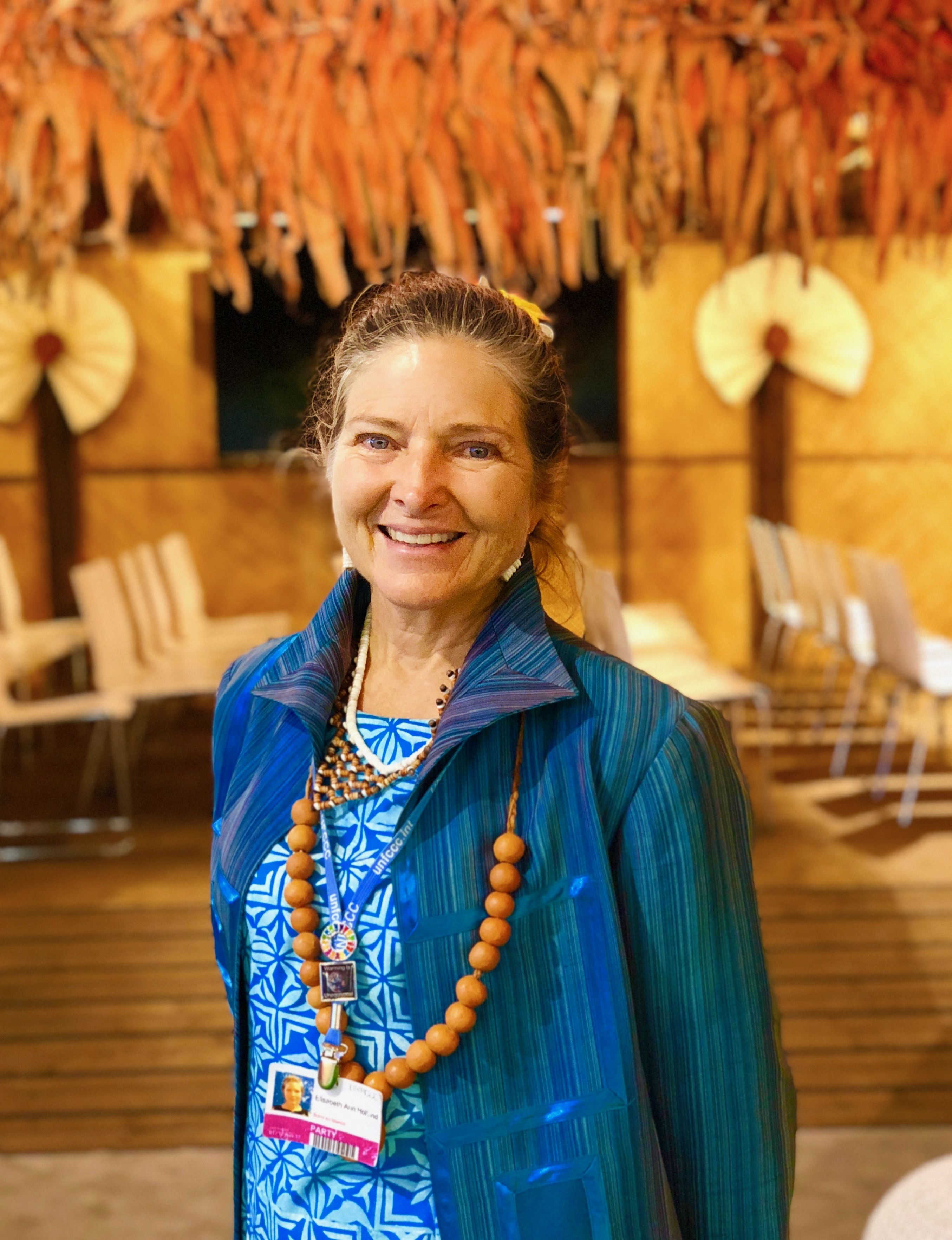
Professor Elisabeth Holland is the Director of the Pacific Center for Environment and Sustainable Development, and the University of the South Pacific’s professor of climate change. Professor Holland is passionate about working collaboratively with communities, and networks of practice to support sustainable development practices that protect the health of our Pacific Big Ocean States. She and her team work in more than 100 communities in 15 pacific countries: Cook Islands, Federated States of Micronesia, Fiji, Kiribati, Nauru, Niue, Palau, Papua New Guinea, Republic of the Marshall Islands, Samoa, Solomon Islands, Timor L’este, Tonga, Tuvalu, and Vanuatu.
Professor Holland is co-recipient of the 2007 Nobel Peace Prize for her contributions to of 4 of the 5 reports produced by the Intergovernmental Panel on Climate Change as a US, German and Fiji representative. Professor Holland is a Leopold Fellow, has served as a Professor and Senior Research Scientist for the Max Planck Institute for Biogeochemistry in Jena Germany, and the National Center for Atmospheric Research in Boulder, Colorado, USA and Bjerknes Fellow. She has led USP’s delegation to support Pacific governments in the IPCC, developing science informed policy, and in negotiating the Paris Agreement.
Abstract:
The Paris Climate Agreement is a cornerstone for the survival of Pacific nations. Pacific leadership ensured key elements of the Paris Agreement: a long-term temperature goal limiting warming to 1.5 degrees Celsius; increasing ambition to reduce greenhouse gas emissions, loss and damage and a periodic five-year review beginning with the Talanoa Facilitative Dialogue.
Pacific leaders remain steadfast in their leadership and commitment on climate change, in spite of the vagaries of shifting international positions. Australia established and then two years later abolished its carbon tax—the world’s first. Both Australia and the US continue to support coal based electricity in contrast with China’s successful moratorium on new coal fired power plants. The Powering Past Coal Alliance is gaining momentum. Fiji has served as both the UN and the UNFCCC COP23, with Australian and German support, to focus a spotlight on the importance of blue economies, and an ocean pathway to ensure that oceans are included climate negotiations. The Republic of the Marshal Islands has led the fight for IMO to address shipping emissions.
Climate solutions and ocean protection requires interdisciplinary, multi-disciplinary, and trans-disciplinary solutions. As a scientific community focused on ocean climate connections, what can we do to support Pacific leadership in the UNFCCC, SDGs and the increasingly complicated landscape of ocean policies?
Could we:
* Partner to undertake a Pacific Climate Change & Ocean Assessment modeled on the Arctic Climate Assessment?
* Build the science foundation for an ocean acidification tax?
* Build locally informed sea level rise projections and ecosystem based coastal resilience for the Pacific ?
* Build partnerships to strengthen ocean observing networks?
* Strengthen Pacific research capacity to support evidence based policy making in the Big Ocean StateS (BOSS) of the Pacific?
Healthy coastal and ocean ecosystems support the establishment of sustainable blue carbon economies that do not rely on intensive fossil fuel emissions and become the foundation for truly sustainable ocean economies for our big ocean states.
Arranged date for the seminar talk: Jun 18, 2018
